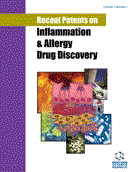Abstract
Phosphoinositide 3-kinase gamma (PI3Kγ) is a lipid kinase in leukocytes that generates phosphatidylinositol 3,4,5-trisphosphate to recruit and activate downstream signaling molecules. Distinct from other members in the PI3K family, PI3Kγ is activated by G-protein coupled-receptors responding to chemotactic ligands. PI3Kγ plays an important role in migration of both myeloid and lymphoid cells. It is also required for other leukocyte functions such as neutrophil oxidative burst, T cell proliferation and mast cell degranulation. Mice with inactivated PI3Kγ by genetic or pharmacological approaches are protected from disease development in a number of inflammation and autoimmune disease models. The function of PI3Kγ depends on its kinase activity and therefore it has been suggested by many reports that small molecules inhibiting its kinase activity could be promising for the treatment of inflammation and autoimmune diseases. Over the last five years, a number of pharmaceutical companies have reported a wide variety of PI3Kγ inhibitors, of which several x-ray crystal structures with PI3Kγ have been elucidated. The structural characteristics and selectivity profiles of these inhibitors, in particular thiazolidinones, 2-aminoheterocycles, and those disclosed in related patent applications are summarized in this review.
Keywords: Phosphoinositide 3-kinase gamma, inflammation, autoimmune disease, arthritis, PI3Kγ inhibitors, thiazolidinones, 2-aminoheterocycles, signaling, neutrophils, macrophages
 81
81


















